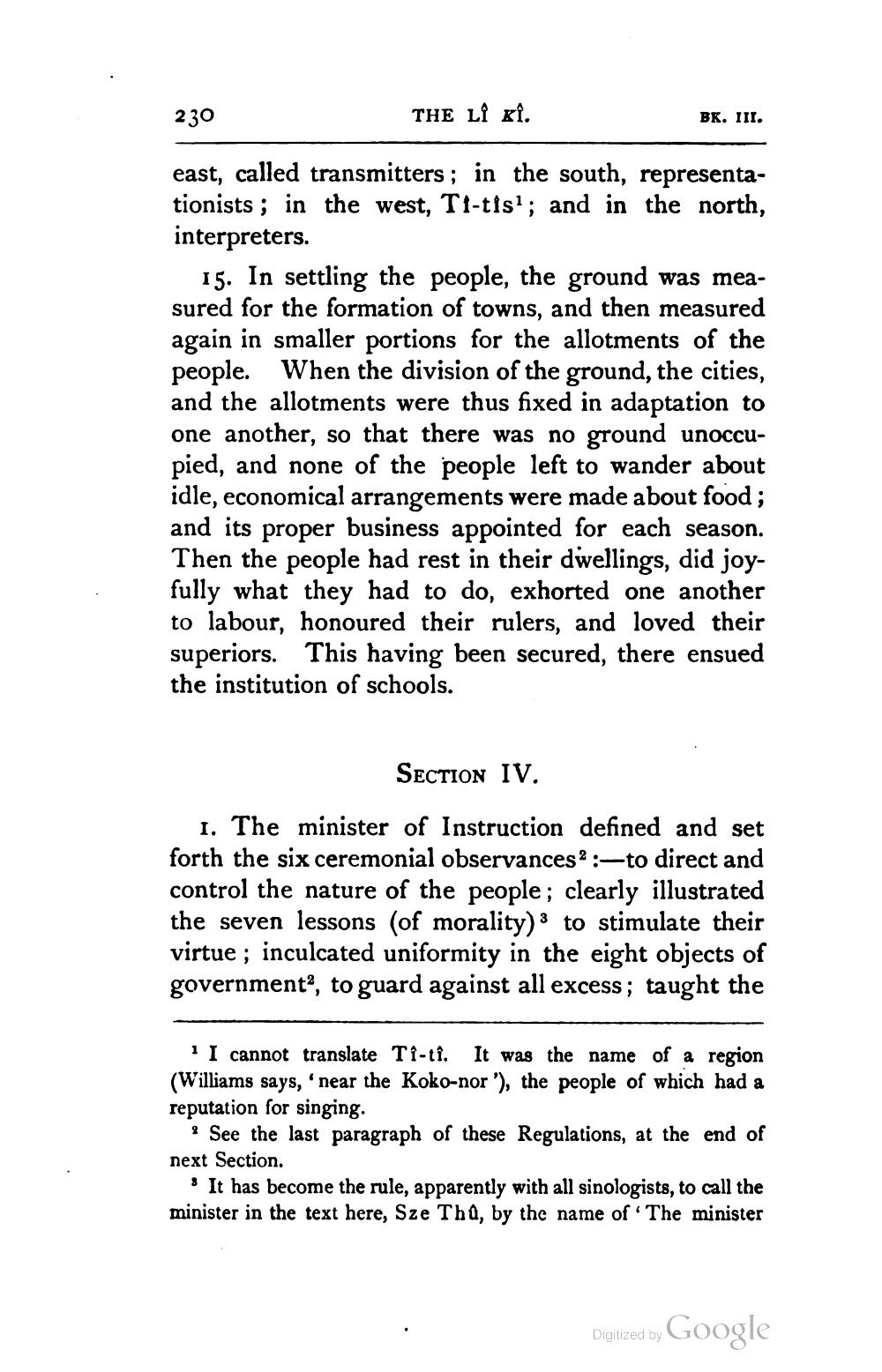________________
230
THE LÎ ki.
BK. III.
east, called transmitters; in the south, representationists; in the west, T1-tis?; and in the north, interpreters.
15. In settling the people, the ground was measured for the formation of towns, and then measured again in smaller portions for the allotments of the people. When the division of the ground, the cities, and the allotments were thus fixed in adaptation to one another, so that there was no ground unoccupied, and none of the people left to wander about idle, economical arrangements were made about food; and its proper business appointed for each season. Then the people had rest in their dwellings, did joyfully what they had to do, exhorted one another to labour, honoured their rulers, and loved their superiors. This having been secured, there ensued the institution of schools.
SECTION IV.
1. The minister of Instruction defined and set forth the six ceremonial observances? :-to direct and control the nature of the people; clearly illustrated the seven lessons (of morality) 3 to stimulate their virtue ; inculcated uniformity in the eight objects of government, to guard against all excess; taught the
"I cannot translate Ti-tî. It was the name of a region (Williams says, 'near the Koko-nor'), the people of which had a reputation for singing.
? See the last paragraph of these Regulations, at the end of next Section.
* It has become the rule, apparently with all sinologists, to call the minister in the text here, Sze Thů, by the name of The minister
Digitized by Google




